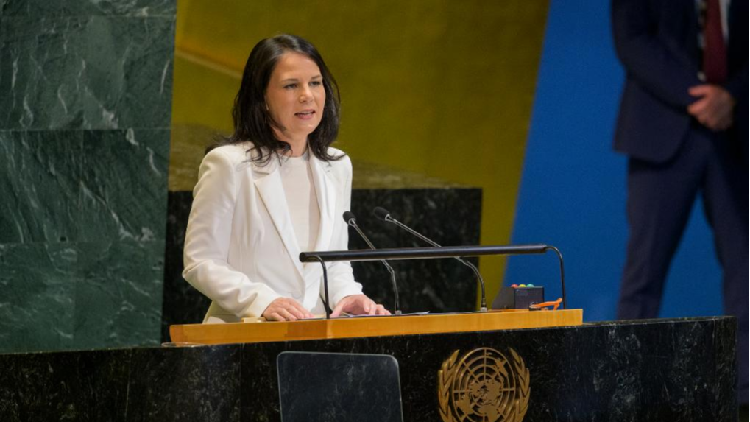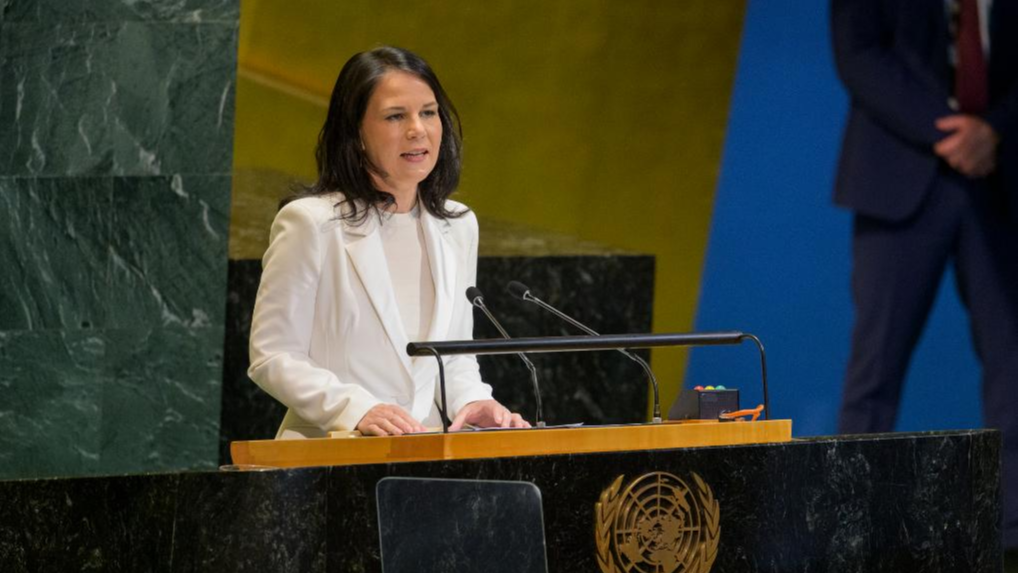German Foreign Minister Baerbock Elected President of UN General Assembly: A Historic Step for Germany's Role in Global Diplomacy
Baerbock vows to serve as an honest broker and unifier for all 193 UN member states, emphasizing trust-based dialogue.


Annalena Baerbock, former German Foreign Minister, was elected as president of the 80th session of the United Nations General Assembly on Monday, following a secret ballot in which she garnered an impressive 167 votes out of 188 cast. Fourteen member states abstained from the vote. Baerbock will formally assume her new responsibilities in September 2025, taking over from Philemon Yang of Cameroon, who currently holds the position.
In her first remarks to the General Assembly following her election, Baerbock emphasized her commitment to serve all 193 member states as an honest broker and unifying force. "As president of the General Assembly, I will engage in a trust-based dialogue with all member states," she promised. Her speech underscored the pivotal role the 80th session will play at a time of exceptional challenges for the United Nations, both politically and financially.
Baerbock drew attention to the stark reality that "more than 120 armed conflicts" are ongoing worldwide, a sobering reminder that the UN’s founding mission—to spare future generations from war—remains incomplete. She warned that achieving the Sustainable Development Goals (SDGs) would remain out of reach without "bold, ambitious, accelerated, just and transformative actions," referencing commitments made in the Pact for the Future. Nevertheless, Baerbock insisted, "Nothing would be better without the United Nations," urging global leaders to protect the organization’s achievements while adapting to meet new and emerging challenges.
UN Secretary-General António Guterres welcomed Baerbock’s election and acknowledged the "difficult and uncertain moment" for the multilateral system. He spoke candidly about the persistent crises facing the world: ongoing conflicts, the worsening climate catastrophe, deepening poverty and inequality, and structural mistrust. The SDGs, Guterres noted, are alarmingly off track, while aid and development funding are waning and the UN’s institutional structures are in need of modernization.
"This is a moment for us to unite, to forge common solutions, and to take action to confront these challenges," he said, highlighting Baerbock’s vision of "Better Together" as an apt rallying cry for today’s world. Guterres also stressed the historic significance of Baerbock’s election, noting that she is just the fifth woman ever to lead the General Assembly.
For eight decades, the UN General Assembly has played a central role in building consensus, finding solutions, and advancing a more peaceful and equal world. As the 79th session concludes and preparations begin for the landmark 80th, leaders emphasized the importance of striving towards the values of solidarity and collaboration that have underpinned the organization since its founding.
Annalena Baerbock brings significant experience to her new role. She served as Germany’s federal foreign minister from December 2021 until May 2025 and has been a member of the Bundestag since 2013. Between 2018 and 2022, she was co-chair of the Greens party, a period marked by her advocacy on climate and human rights issues. Born in Hanover in December 1980, Baerbock holds an undergraduate degree in political science from Hamburg University and a Master of Laws from the London School of Economics and Political Science.
As the world prepares for the 80th session of the General Assembly, expectations are high for Baerbock’s leadership to help steer the international community through a period of unprecedented pressure and change.




